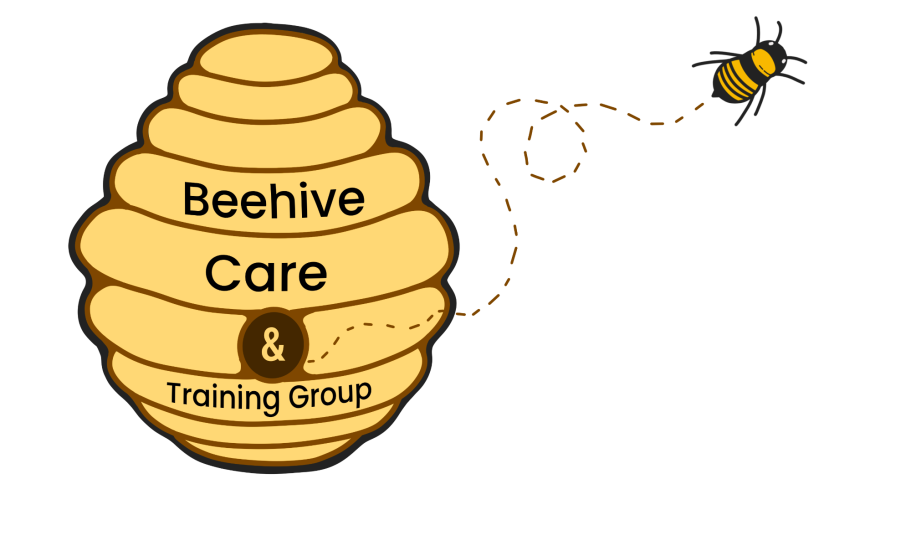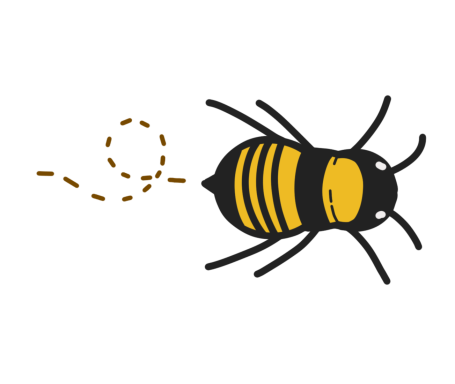
A Guide to Preventing Slips, Trips, and Falls for the Elderly
By Alexandra Nash
As we age, maintaining balance and mobility can become more challenging, increasing the risk of slips, trips, and falls. These incidents can lead to serious injuries, impacting the quality of life for elderly individuals. At Beehive Care & Training Group Ltd, we are committed to helping our community stay safe and independent. This guide provides practical tips and advice to prevent falls and ensure the well-being of our elderly loved ones.
Understanding the Risks
Falls are a leading cause of injury among older adults. Several factors contribute to the increased risk of falls, including:
- Declines in Physical Fitness: Reduced muscle strength, poor balance, and decreased flexibility can make it harder to stay steady on your feet (https://www.ncoa.org/professionals/health/center-for-healthy-aging/national-falls-prevention-resource-center/).
- Impaired Vision: Age-related eye conditions can make it difficult to see hazards clearly (https://www.ncoa.org/professionals/health/center-for-healthy-aging/national-falls-prevention-resource-center/).
- Medication Side Effects: Some medications can cause dizziness, drowsiness, or low blood pressure, increasing the risk of falls(https://www.ncoa.org/professionals/health/center-for-healthy-aging/national-falls-prevention-resource-center/).
- Chronic Conditions: Health issues such as arthritis, diabetes, and heart disease can affect balance and mobility (https://acl.gov/FallsPrevention).
Statistics on Falls in the Elderly
- Falls are the leading cause of injury-related death among adults aged 65 and older (https://www.ncoa.org/professionals/health/center-for-healthy-aging/national-falls-prevention-resource-center/).
- Each year, over 14 million older adults (about 1 in 4) report falling(https://www.ncoa.org/professionals/health/center-for-healthy-aging/national-falls-prevention-resource-center/).
- Approximately 37% of those who fall suffer an injury that requires medical treatment or restricts their activity for at least one day(https://www.ncoa.org/professionals/health/center-for-healthy-aging/national-falls-prevention-resource-center/).
- Falls result in about 3 million emergency department visits and nearly 1 million hospitalisations annually among older adults(https://acl.gov/FallsPrevention).
- In 2021, falls caused 38,000 deaths among those aged 65 and older (https://www.cdc.gov/falls/communication-resources/index.html).
Preventative Measures
Taking proactive steps can significantly reduce the risk of falls. Here are some practical tips to help prevent slips, trips, and falls:
1. Keep Moving: Regular physical activity can improve strength, balance, and coordination. Activities such as walking, water workouts, or tai chi are excellent options. Always consult with your healthcare provider before starting a new exercise routine.
2. Wear Sensible Shoes: Choose shoes that fit well and have non-slip soles. Avoid high heels, floppy slippers, and walking in stocking feet.
3. Home Safety Modifications: Make your home safer by removing trip hazards such as loose rugs and clutter. Install grab bars in the bathroom, use non-slip mats, and ensure good lighting throughout your home.
4. Medication Review: Regularly review your medications with your healthcare provider to identify any that may increase your risk of falling. They may adjust dosages or suggest alternatives.
5. Vision and Hearing Checks: Have your vision and hearing checked regularly. Corrective lenses and hearing aids can help you stay aware of your surroundings (https://acl.gov/FallsPrevention).
6. Use Assistive Devices: If recommended by your healthcare provider, use assistive devices such as canes or walkers to help maintain balance and stability.
7. Stay Hydrated and Eat Well: Proper nutrition and hydration are essential for overall health and can help maintain muscle strength and balance.
8. Emergency Preparedness: Keep a phone within reach and consider wearing a medical alert device to call for help if needed.
Local Resources for Fall Prevention
Here are some local resources in Devon that can help with fall prevention:
- Age UK Devon: Offers a range of services and support for older adults, including fall prevention advice and home safety checks. Visit their website or contact them for more information.
- Devon County Council: Provides information and resources on fall prevention, including details on local exercise classes and home safety assessments. Check their website for more details.
- Royal Devon and Exeter NHS Foundation Trust: Offers fall prevention clinics and rehabilitation services. Contact them to learn more about their programmes and support.
- East Devon District Council: Provides information on local community support services and fall prevention initiatives. Visit their website for more information.
Beehive Care & Training Group Ltd: Your Partner in Safety
At Beehive Care & Training Group Ltd, we are dedicated to enhancing the well-being of individuals by providing high-quality home care services tailored to meet their unique needs and preferences. Situated in the heart of Rural East Devon, amidst the serene beauty of the Blackdown Hills, we proudly support local rural communities.
Our mission is to empower individuals, preserve their dignity, and foster independence through compassionate care and companionship. We offer a range of services, including personal care, meal preparation, medication management, light housekeeping, and companionship. Our commitment to excellence extends to our comprehensive training programs for care staff, ensuring that our team is equipped with the knowledge and skills necessary to deliver outstanding care.
Contact Us Today
Feel free to contact us at info@bct-group.co.uk, and we will be more than happy to assist you in your journey to secure the care you need.
©Beehive Care & Training Group Ltd Copyright. All rights reserved.
We need your consent to load the translations
We use a third-party service to translate the website content that may collect data about your activity. Please review the details in the privacy policy and accept the service to view the translations.

